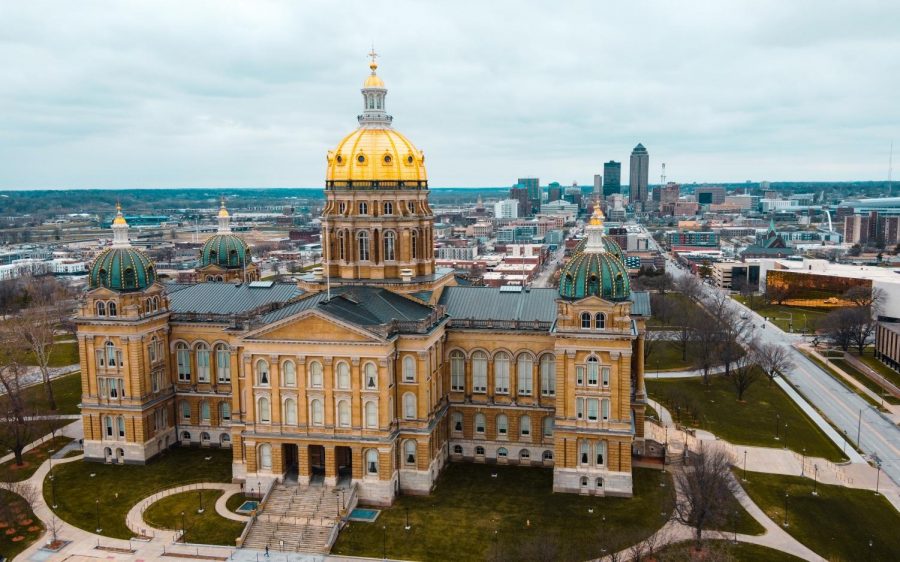The State of Gambling in Iowa and How It Is Influencing the Economy
June 14, 2021
It’s no secret that the coronavirus pandemic had a huge effect on many sectors. While healthcare and hospitality might be among the ones that suffered the biggest impact, all industries have felt the consequences of the pandemic in one way or another. For example, the gambling industry had a terrible year as many brick-and-mortar casinos reported a loss. On the other hand, with the surge of online gambling, those operators that offer playing on various devices did not suffer such a loss.
But what is the state of gambling in Iowa and what influence does it have on the state’s economy? Read on to familiarize yourself with some important stats.
What is the current legal status of gambling in Iowa?
To begin with, it needs to be said that gambling in the Hawkeye State is legal. When it comes to the Midwest, Iowa has some of the more permissive gambling laws, which is usually associated with the cultural legacy of the state and its vicinity to the Mississippi River where casinos on riverboats were common during the 19th century. As a matter of fact, Iowa was the first state that legalized riverboat casinos.
During its long history with gambling, Iowa legalized horse and dog racing in 1983, while 1985 saw the birth of the state lottery. The riverboat gaming referendums were passed in 1985 and the first three brick-and-mortar casinos in the state were opened in 1994. Only Nevada, New Jersey, and South Dakota casinos were legalized before the Iowa ones. Over time, the regulations were further relaxed, which led to several land-based casinos opening their doors to the public.
Then, when PASPA was struck down in 2018, each state was free to form and pass its own laws concerning gambling. New Jersey, for example, was one of the states that took this opportunity and decided to legalize most forms of gambling while Hawaii and Utah chose to keep gambling a banned practice. Iowa also took some time to decide how it will move forward. In May 2019, wagering was made legal, and retail and online betting operations started in August 2019.
What gambling options are available in Iowa?
With all the laws and regulations in mind, where can Iowans actually go to place a few wagers?
For starters, citizens have over twenty land-based casinos at their disposal, including Hard Rock Sioux City, Riverside Casino & Golf Resort, and Wild Rose Casino and Resort. Some of these casinos such as Isle Casino Hotel Bettendorf and Rhythm City Casino Resort began as riverboat casinos but have moved to a land-based venue. Currently, there are only three riverboat casinos that are operational in Iowa. Furthermore, four of the casinos that operate in Iowa are Native American. In these land-based establishments, visitors can expect a wide array of games, just like if they were to visit Las Vegas or Atlantic City.
In terms of online gambling, residents should know that the activity is not explicitly prohibited. There are no laws in Iowa that make online betting illegal. What is more, SF617 is the only law that addresses this practice, and it actually makes sports betting legal. Therefore, Iowans are free to do some research and find the best casinos available in Iowa. While there are no state-licensed operators, there are plenty of offshore providers that give Iowa’s residents a chance to play their favorite casino games and place a few sports bets.
What effect does gambling have on Iowa’s economy?
As there is a wide array of ways how Iowans can place their wagers, both online and in land-based establishments, it should not come as a surprise that gambling as a practice has many benefits for the state. For example, in 2018, Iowa was the 11th highest-ranking US state in casino gross gaming revenue with $1.467 billion. Moreover, 2016 saw $370 million in annual lottery sales.
The success of this sector is great news for the state, seeing as how high the taxes are that operators have to pay in order to keep their casinos running. In addition, casinos are Iowa’s biggest tourist attraction as about 50 to 60 percent of guests are from surrounding states like Wisconsin, Nebraska, and Minnesota.
Finally, the number of jobs that the gambling industry creates cannot be overlooked either. When it comes to land-based casinos, there are positions like dealers, croupiers, waiters, cleaners, and security that are available and usually filled by Iowans in need of a job. Then, as more and more casinos are creating and updating their websites and apps on a regular basis, there is also a need for tech-savvy people like web designers, app developers, and IT technicians.
Many states realized the economic boost they could experience due to the ability to pass their own laws concerning gambling, and Iowa is one of the earliest that made gambling available to its residents. With many forms of betting available, Iowa’s economy is only going to get better.



